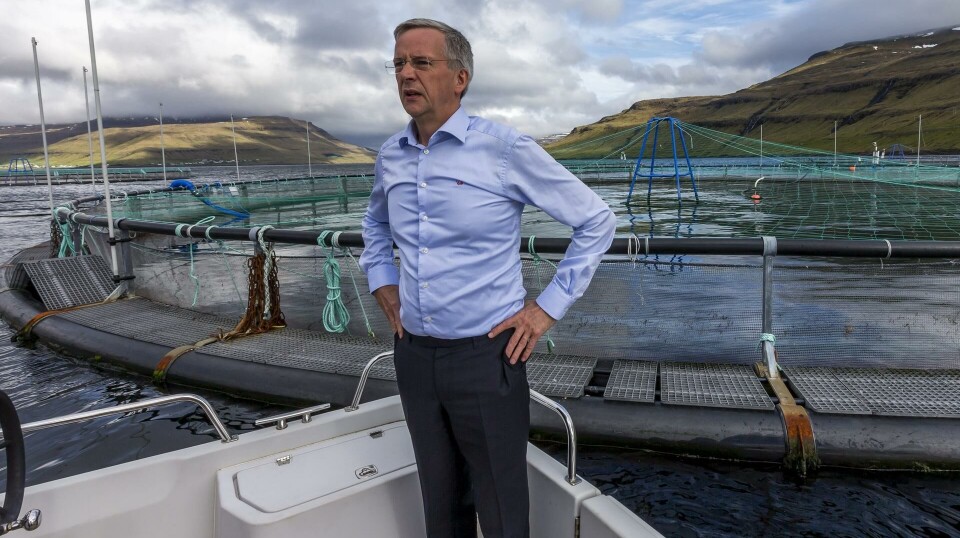
More good than bad for Bakkafrost Scotland in Q4
Bakkafrost’s salmon farming operation in Scotland performed better in the fourth quarter of last year than during the same period in previous years, although it encountered some biological problems and still lost money, the Faroese company revealed in its Q4 2024 report today.
“Mortality levels reduced, sea lice levels were all-time low and average harvest weights were good. Overall, the de-risking strategy for the Scottish farming operation has been successful, however some sites had elevated mortality in this quarter due to early maturation,” wrote Bakkafrost.
“This is believed to be linked to issues with the smolt quality of these fish when transferred early in 2023. To reduce the risk further, Bakkafrost chose to harvest more fish in Q4 2024 than originally planned, increasing the total harvest volume for 2024. Despite advanced harvest the average harvest weights have were good.”
Bakkafrost Scotland harvested 3,840 gutted weight tonnes of salmon in Q4, and an average wight of 4.8 kg.
Harvesting in H1
As in 2024, Bakkafrost Scotland will harvest around two-thirds of its 2025 volume in the first half of the year to avoid biological problems it has previously experienced in Q3, when the sea is at its warmest.
Bakkafrost Group made an operating profit of DKK 280 million (£31.2m) in Q4, a reduction of DKK 76m compared to the same period last year when salmon prices were higher. Bakkafrost Faroes made an operating profit of DKK 310m, while Bakkafrost Scotland recorded a reduced operating loss of DKK -31m, down from DKK -104m in Q4 2023.
For the full year, Bakkafrost Group made an operating profit of DKK 1.55 billion (2023: DKK 1.544bn) and revenue of DKK 7.48bn (DKK 7.141bn). Profit after tax was DKK 645m (DKK 955m).
Bakkafrost Faroes harvested 62,776 gutted weight tonnes last year, and Bakkafrost Scotland harvested 27,880 gwt. This was more than planned due to the advanced harvesting in Q4. Bakkafrost plans to harvest 20,000 gwt this year, and will more than double production to 45,000 gwt next year when it has stocked more large smolts.
Average weights up
The average weight of salmon harvested by Bakkafrost in 2024 was 5.2 kilos (2023: 4.2 kg) in the Faroes and 4.3 kg (4.2 kg) in Scotland. Bakkafrost made an operating profit of DKK 18.6 per kilo (DKK 16.10) in the Faroes, and an operating loss of DKK -5.54 (DKK -11.53) per kilo in Scotland.
Bakkafrost chief executive Regin Jacobsen said the company’s freshwater and farming operations in Faroe Islands had a strong development in Q4, with the freshwater segment setting new production records for the second consecutive quarter of producing large, high-quality smolt.
“In Scotland, the transition to producing large, high-quality smolt at Applecross has begun,” added Jacobsen. “As we scale up production this year and gradually replace legacy fish from our marine farms with high-quality fish, we expect a fundamental transformation of our farming operations from next year onwards. Overall, we are pleased with the de-risking of our Scottish operations in 2024. Mortality has decreased significantly, and fish harvested in the quarter were large, contributing to the highest full-year EBITDA since the acquisition.”






















































